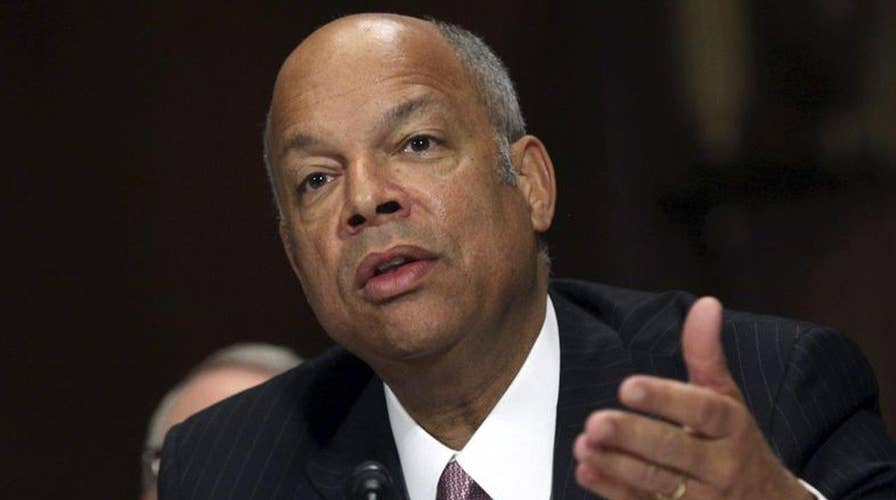Homeland Security secretary addresses election cybersecurity
Doug McKelway reports from Washington, D.C.
Cyber security experts say the threat to Tuesday's election by some malign state actor or rogue hacker changing the actual vote count is probably slim, given that the U.S. voting system is fragmented and decentralized. The state by state, district by district and polling place by polling place network provides an inherent safeguard – one that is augmented by the fact that widely used electronic voting machines are not connected to the internet.
In a backround briefing Friday, DHS officials did acknowledge, however, that private sector vendors that help manage state voter database systems have fallen victim to cyberintrusions, although they would not speak to the exact number. Those hacks would not pave the way for any skewing of the vote count, but would give the cyber actors access to personally identifiable information on voters.
Rumors that Democratic Party money man George Soros owns Smartmatic, a voting machine company that supplies several states, have been debunked. "George Soros has zero ownership or involvement in our company. Smartmatic has no ties to political parties or groups in any country and it abides by a strict code of ethics that forbids the company from donating to any political campaigns of any kind, " company CEO Antonio Mugica and chairman Lord Mark Malloch-Brown told the Washington Post.
Anecdotal reports of touchscreen machines casting the wrong ballot have largely been attributed to occasional calibration problems that are few and easily fixed.
That said, there is little doubt among security experts that Russia under President Putin has been trying to disrupt the U.S. election process. Secretary of Homeland Security, Jeh Johnson, made that clear in remarks in October. "The U.S. intelligence community is confident the Russian government directed the recent compromises of e-mails from U.S. persons and institutions, including from U.S. political organizations," he said.
Such denial of service attacks are potentially very harmful, given the huge mistrust between U.S. political parties, and the general divisiveness marking this long election season. It is potentially more harmful still, if the election is close, says cybersecurity expert Morgan Wright. "If they attack the place that is supposed to report out the results, if they attack the media sites, too, that are collecting this information, what we have is chaos," he says.
The Department of Homeland Security is now working with 48 states that have requested cyber security help – offering risk assessment and scanning for malware which can be done remotely.
Some have speculated that President Putin's personal animus for Hillary Clinton - stemming from demonstrations that followed Russia's 2011 parliamentary elections - may have contributed to the Russian hacking of only Democratic Party emails.
Yet, Wikileaks Founder, Julian Assange, recently said Russia in not behind the ongoing Podesta email leaks - all adding to intrigue about who's doing the hacking, and who may threaten more.
Fox News' Matthew Dean contributed to this report













































